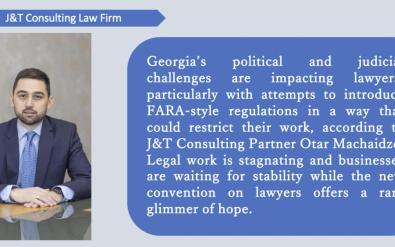Determining the applicable law to the arbitration agreement using the most significant relationship and the closest connection doctrine

28.03.2022
Author: Tatia Turazashvili
In order to determine the applicable law to the arbitration agreement it’s important to take into consideration the principle of separability. In respect of the principle of separability of the arbitration agreement, generally several approaches (not exhausted) been employed in different jurisdictions: (1) admit that the arbitration agreement shall be a separate agreement to the main contract and envisage the law of the seat as the default governing law when the parties failed to choose a specific governing law of it; (2) admit that the separability is only a kind of legal fiction to save the validity of the arbitration agreement when there was any problem of the conclusion of the main contract. Therefore, the governing law of the arbitration agreement shall not be necessarily different and separate from the law governing the main contract;
The doctrine of separability is endorsed by institutional and international rules of arbitration and an increasing number of countries have made their position clear by making the separability of the arbitration clause part of their laws on arbitration. Because it can be considered to be a separate agreement, the parties and the arbitration tribunal should know what system of law or rules is to be used if any question arises as to the validity or scope of the arbitration clause. The principle of separability in English law provides that an arbitration agreement which forms or was intended to form part of another (“main” or “host”) agreement will not necessarily be regarded as invalid or non-existent on the grounds that the main agreement is invalid or has not come into existence. For these purposes the arbitration agreement will be treated as a separate, independent agreement. As the arbitration clause in a contract constitutes a separate and independent agreement, the possibility that it is governed by a separate state law from that which governs the contract may need to be considered.
“Three stage test” is a well-established approach to decide which law governs the arbitration agreement. The test involves asking whether the Parties made an express or implied choice of law for the arbitration agreement and, if not, which system of law, the contract has the closest and most real connection with it. In absence of the Parties’ choice, the surrounding conditions should be considered to determine which system of law the agreement has its closest and most real connection objectively. According to the most significant relationship doctrine to decide the applicable law, it should be determined from the circumstances of a case-by-case basis, which jurisdiction has the most significant relationship to the given situation.
There are many approaches how the closest connection doctrine and most significant relationship can be defined, however, from the analyses of most cases it can be said that the seat of arbitration and the law of the main agreement take advance in deciding the governing law of the arbitration agreement.
An agreement to arbitrate will normally have a closer and more real connection with the place where the Parties have chosen to arbitrate than with the place of the law of the underlying contract. Some even suggest that the seat is undoubtedly considered to be the most significant factor in the determination of the applicable law of the arbitration agreement. There are cases in different jurisdictions in which a court or arbitral tribunal has taken the law of the seat of the arbitration to be the appropriate law to govern the parties’ arbitration agreement. In the absence of any express or implied agreement between the parties as to the applicable law of the arbitration agreement, the law of the seat of arbitration shall be applied.
By agreeing to a seat of arbitration, the parties submit themselves to the jurisdiction of the courts of that place for deciding any issue relating to the validity or enforceability of their arbitration agreement. Parties' agreement on the seat of arbitration can also lead to a strong presumption that they had made an implied choice for the law of the seat to govern the arbitration agreement. Hence, similar to the performance of a substantive contract, the chosen seat is the place of performance of the arbitration agreement, therefore its law is most closely related to the arbitration agreement. When considering the reasonable commercial expectation of the Parties, especially those who have different nationalities and have chosen a neutral forum to arbitrate, the law of the seat is most likely to uphold the reasonable expectation of them. Compared with their national systems of law, parties in such circumstances would inherently be more likely to choose a neutral law which neither the party is connected to govern their arbitration agreement.
As mentioned above, The English law approach to determining the governing law of an arbitration agreement has, since the Court of Appeal judgment in Sulamerica CIA Nacional de Seguros SA v Enesa Engenharia SA [2012] EWCA Civ 638, been determined by reference to a three stage test. A key dividing question has been whether an express choice of the law governing the substantive contract could amount to an implied choice of the law governing the arbitration agreement, or whether the law of the seat of arbitration would, as the law most closely connected, govern the arbitration agreement. One of the most recent approaches was clearly demonstrated in Enka Case. In summary, the Supreme Court ruled that if parties to a contract have not expressly or impliedly specified the law that governs their arbitration agreement, then the governing law of the contract (if specified) would apply. This is the case even if the seat is different to the governing law of the contract. But if the governing law of the contract is not specified, whether expressly or impliedly, then the arbitration agreement will be governed by the law most closely connected with the arbitration agreement. In general, that will be the seat of the arbitration.
In determining the question – whether the parties have made a choice of law – the court held that it is a question of interpretation, and the court should construe the arbitration agreement by applying English law rules of contractual interpretation as the law of the forum seized. In this, the Supreme Court disagreed with the Court of Appeal which had asserted that to construe the contract, the court should apply the principles of the law of the substantive contract, even if different to English law. The Supreme Court definitively stated “The main contract law, if different, has no part to play in the analysis.” – the law of the forum only should be applied.
In determining the law governing an arbitration agreement, the majority offered a default ‘rule’: where the parties have not specified the law applicable to the arbitration agreement, but they have chosen the law to govern the contract containing the arbitration agreement, this choice will generally apply to the arbitration agreement on the basis that it is an implied choice of law governing the arbitration agreement. The court stated that the assumption that, unless there is good reason to conclude otherwise, all the terms of a contract are governed by the same law, applies to an arbitration clause as it does to any other clause of a contract (although the court noted that an arbitration clause may more readily than other clauses be governed by a different law given it has a different subject matter and purpose than the substantive contract). The majority further stated that: “it is natural to interpret such a governing law clause, in the absence of good reason to the contrary, as applying to the arbitration clause for the simple reason that the arbitration clause is part of the contract which the parties have agreed is to be governed by the specified system of law”. This rule encourages legal certainty and consistency of approach.
The court held that it was wrong to assert (as the Court of Appeal had done) that there is a “strong presumption” that the parties have chosen, by way of implied choice, the law of the seat of the arbitration to govern the arbitration agreement. The basis on which the Court of Appeal had made this assertion was rooted in the principle of separability and that the law governing a contract had little bearing on the arbitration agreement as a “different and separate agreement”. The majority reasoned that this overstated the separability principle which, in its essence, is used where applying the law governing the contract would render the arbitration agreement invalid or ineffective.
In summary, the Supreme Court ruled that if parties to a contract have not expressly or impliedly specified the law that governs their arbitration agreement, then the governing law of the contract (if specified) would apply. This is the case even if the seat is different to the governing law of the contract. But if the governing law of the contract is not specified, whether expressly or impliedly, then the arbitration agreement will be governed by the law most closely connected with the arbitration agreement. In general, that will be the seat of the arbitration.
The Supreme Court decision in Enka is an important development of English arbitration law, and one worthy of note for all commercial parties who choose to include arbitration agreements in their contracts. However, in practice, good drafting has always prescribed expressly stating both the choice of governing law of the substantive contract as well the governing law of the arbitration clause. Failure to specify both has the potential to lead to disputes and extensive satellite litigation as evidenced in this case. With this recent Supreme Court judgment, however, there is now greater certainty as to how such disputes will be resolved.
Keywords: Arbitration, Arbitration Agreement, Applicable law, the closest connection doctrine
Bibliography
Cases
- Hyundai Merchant Marine Company Limited v Americas Bulk Transport Limited MV [2013] EWHC 470 (Comm)
- Sulamerica CIA Nacional de Seguros SA and others v Enesa Engenharia SA and others [2012] EWCA Civ 638
- Enka Insaat Ve Sanayi AS v OOO “Insurance Company Chubb” United Kingdom Supreme Court, 9 October 2020 [2020] USKC 38
- BCY v. BCZ Case Singapore High Court, 9 Nov 2016 [2016] SGHC 249
- Balkan Energy Ltd. v. Republic of Ghana, 302 F. Supp. 3d 144 (D.D.C. 2018)
- Kabab-Ji Sal (Lebanon) v Kout Food Group (Kuwait) [2021] UKSC 48
- Lew, Solomon v Kaikhushru Shiavax Nargolwala and others Court of Appeal of the Republic of Singapore, 10 February 2021
- Dallah Real Estate and Tourism Holding Company v. Ministry of Religious Affairs, Government of Pakistan United Kingdom Supreme Court, 3 November 201 [2010] UKSC 460
- Georgia W. Babcock.V.Mabel B. Jackson, as Executrix of William H. Jackson, Deceased. Court of Appeals of New York, May 9, 1963, Case No.12 NY2d 47
Literature
- Redfern and Hunter on International Arbitration (Sixth Edition) Oxford University Press (2015)
- Restatement of the U.S. Law of International Commercial and Investor-State Arbitration;
- HK Arbitration Ordinance (Cap. 609)
- Fouchard Gaillard Goldman, International Commercial Arbitration (Gaillard and Savage (eds.)), Kluwer Law International (1999)
- Gary B. Born, International Commercial Arbitration (third Edition), Kluwer Law International (2021)
- Albert J. van den Berg, The New York Arbitration Convention of 1958: Towards a Uniform Judicial Interpretation, Kluwer Law International (1981)
- Hayward, Benjamin, Conflict of Laws and Arbitral Discretion - The Closest Connection Test, Oxford 2017






